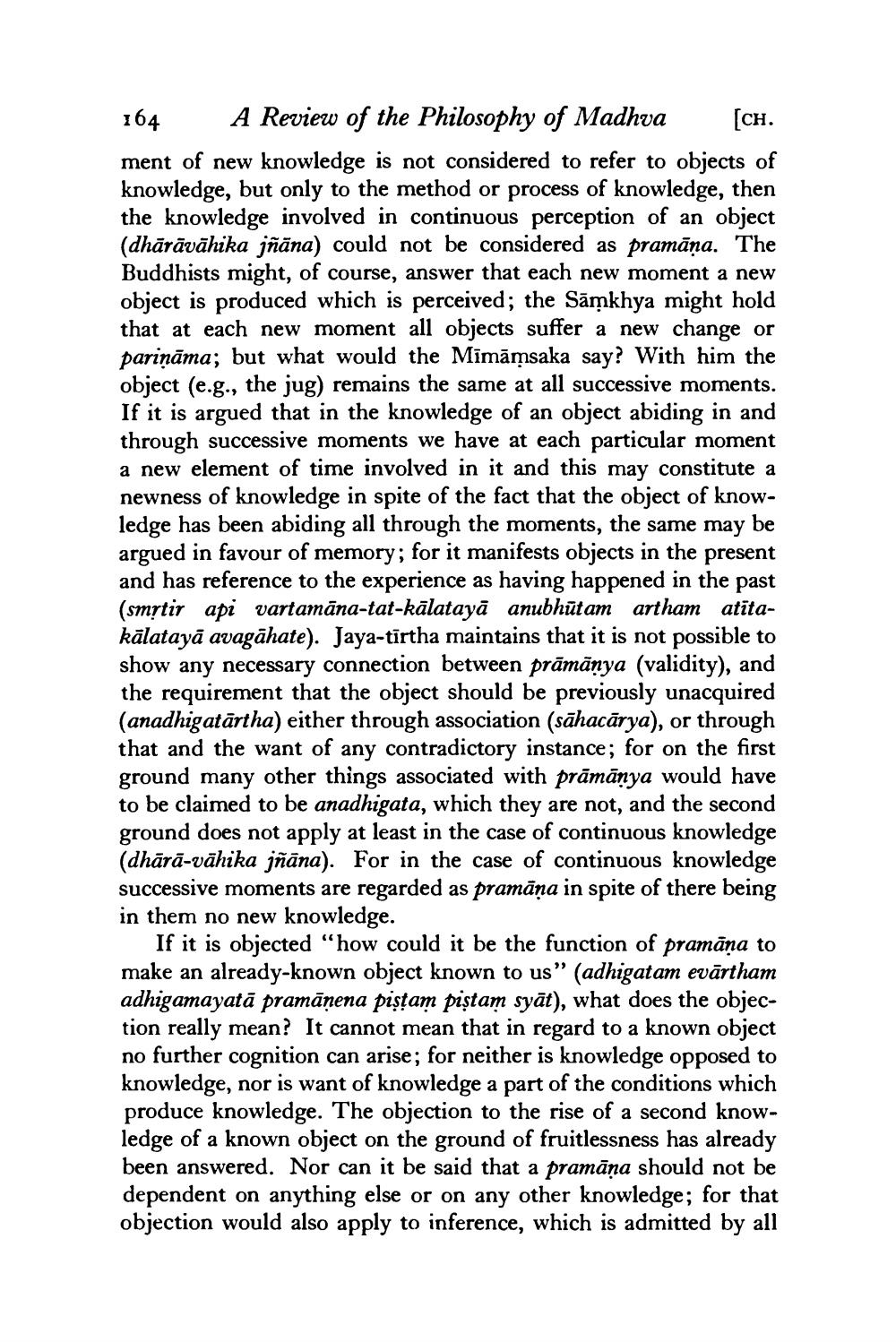________________
164 A Review of the Philosophy of Madhva [CH. ment of new knowledge is not considered to refer to objects of knowledge, but only to the method or process of knowledge, then the knowledge involved in continuous perception of an object (dhārāvāhika jñāna) could not be considered as pramāņa. The Buddhists might, of course, answer that each new moment a new object is produced which is perceived; the Sāmkhya might hold that at each new moment all objects suffer a new change or parināma; but what would the Mimāmsaka say? With him the object (e.g., the jug) remains the same at all successive moments. If it is argued that in the knowledge of an object abiding in and through successive moments we have at each particular moment a new element of time involved in it and this may constitute a newness of knowledge in spite of the fact that the object of knowledge has been abiding all through the moments, the same may be argued in favour of memory; for it manifests objects in the present and has reference to the experience as having happened in the past (smộtir api vartamāna-tat-kālatayā anubhūtam artham atitakālatayā avagāhate). Jaya-tirtha maintains that it show any necessary connection between prāmānya (validity), and the requirement that the object should be previously unacquired (anadhigatartha) either through association (sāhacārya), or through that and the want of any contradictory instance; for on the first ground many other things associated with prāmānya would have to be claimed to be anadhigata, which they are not, and the second ground does not apply at least in the case of continuous knowledge (dhārā-vähika jñāna). For in the case of continuous knowledge successive moments are regarded as pramāņa in spite of there being in them no new knowledge.
If it is objected "how could it be the function of pramāna to make an already-known object known to us” (adhigatam evārtham adhigamayatā pramānena pistam piştam syāt), what does the objection really mean? It cannot mean that in regard to a known object no further cognition can arise; for neither is knowledge opposed to knowledge, nor is want of knowledge a part of the conditions which produce knowledge. The objection to the rise of a second knowledge of a known object on the ground of fruitlessness has already been answered. Nor can it be said that a pramāna should not be dependent on anything else or on any other knowledge; for that objection would also apply to inference, which is admitted by all




